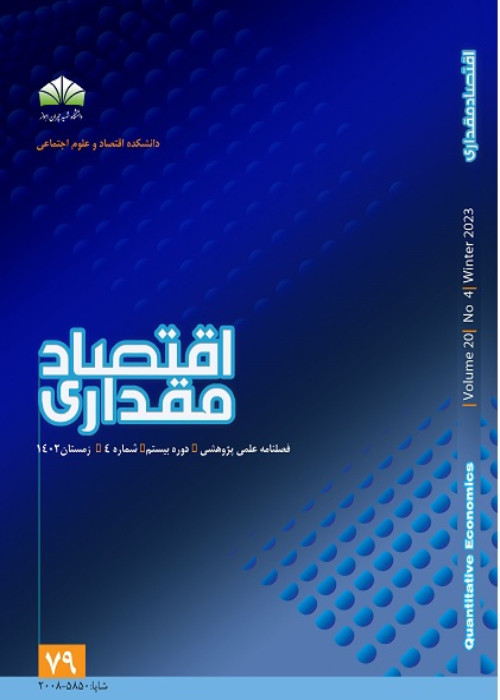The impact of good governance on income inequality in selected developing and developed countries with an emphasis on control of corruption
Unequal distribution of income in society has caused many problems in the areas of economic, social and political will of each country, that's why one of the most important tasks of governments is proper income distribution in society. Governments recommend short-term solutions to address income inequality, while implementing these short-term policies without recognizing the influencing factors can have adverse consequences on revenue distribution. In order to deal with the problem of income inequality and establishing a fair distribution of income should identify its risk factors and appropriate and effective policies be adopted to improve income distribution. Due to the growing trend of income inequality, high unemployment and economic inefficiency in various societies, especially in developing countries, and the special role of government in achieving a fair and equitable distribution of income, the issue of good governance needs to be addressed. Income inequality and good governance are among the most important economic issues in any country. The World Bank has good governance based on six indicators; It has introduced corruption control, government efficiency and effectiveness, political stability, quality of law and regulation, rule of law and the right to comment and be held accountable, one of the most important components of which is the corruption control variable. Indicators of governance play a very important role in the economic environment in terms of economic growth and development. Governance is considered as one of the basic inputs for the welfare of the people. Therefore, paying attention to the role of indicators of good governance and its absence, especially in developing countries and its impact on income distribution, which is one of the most important goals of governments, is very important and necessary. This study is one of the preliminary studies that can be compared to other studies from three aspects: technical, regional and temporal.The purpose of this study is to investigate the effect of good governance on income inequality in selected developing and developed countries, with emphasis on control of corruption over the period 2017-2000.
In this research, three indicators of political stability, rule of law and corruption control have been used as good governance. Using dynamic quantile panel regression, on one hand, the effect of good governance indicators on income inequality has been investigated, and on the other hand, the effect of tax revenues on Along with the inflation rate and GDP per capita, it has been investigated as instrumental variables on income inequality.
The results of the estimated the dynamic quantile panel regression model show that control of corruption and rule of law in both countries the quarters 25, 50 and 75 respectively positive and negative and significant effect on income inequality. Political stability in both groups of countries has negative effects in quarters 25 and 50 and in quarter 75 positive and significant. Also the tax revenues, inflation rate and GDP per capita these quarters in the selected countries have different effects on income inequality.
Rule of law and corruption control indicators have significant negative and positive effects on income inequality in both groups of selected countries and in all quartiles, respectively. Also, the coefficient of the political stability index shows that in the first two quarters in both groups of countries, it has a negative and significant effect on income inequality (Gini coefficient) and this can mean that with political instability, weak investment motivation and consumerism in these societies. be strengthened, which leads to a decrease in production and income inequality. Meanwhile, in the third quarter in both groups of countries under study, the political stability index has a positive and significant effect on income inequality, in the sense that with the increase in political stability, income distribution becomes more equal.
- حق عضویت دریافتی صرف حمایت از نشریات عضو و نگهداری، تکمیل و توسعه مگیران میشود.
- پرداخت حق اشتراک و دانلود مقالات اجازه بازنشر آن در سایر رسانههای چاپی و دیجیتال را به کاربر نمیدهد.



